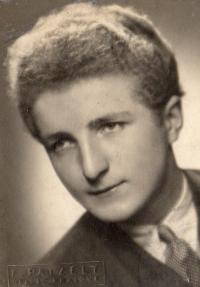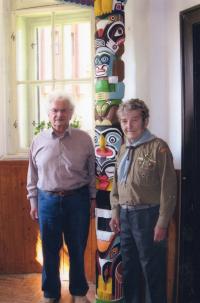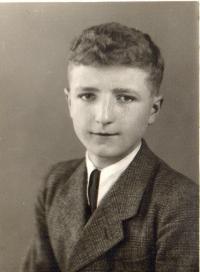Due to the war I have lost the best time for Scouting
Karel Malý was born in 1928 in Dvůr Králové. He joined the Scouts already before WWII. After the war he began leading Cub Scouts, and continued as a leader until the end of his life. During the war he studied at a trade academy and learned the typographer‘s trade. The fact that his father had been a legionnaire in Russia during WWI where he fought against the Bolsheviks complicated Karel‘s life during the subsequent communist era. He was drafted to the Auxiliary Technical Battalions (PTP) where he had to work in coal mines in Kladno. His military service period was extended and he faced problems in his job as well. He has spent the rest of his life in Dvůr Králové, where he died on June 8, 2012.



